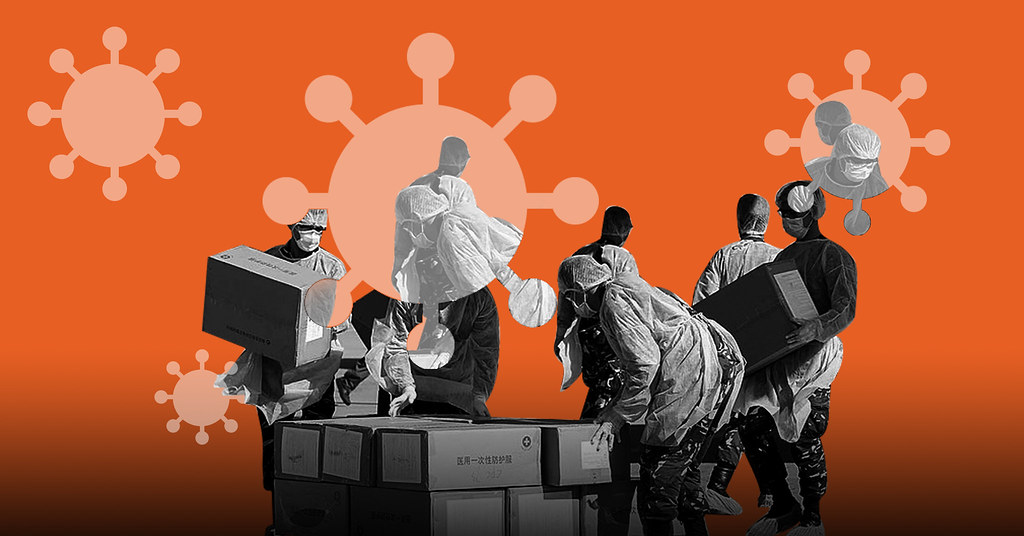In a statement released on Monday (30 March), Thai Lawyers for Human Rights (TLHR) says that while they find that it is necessary for the state to “impose measures” to control the spread of COVID-19, it finds that the Emergency Decree, in effect from 26 March to 30 April, “contains provisions which significantly restrict people’s rights and freedom,” especially freedom of expression, press freedom, and freedom of movement, raising concerns about the necessity and proportionality of the measures issued under the decree.

TLHR says that they “acknowledge the enforcement of the Emergency Decree Serves a clear purpose to control and limit the local transmission of COVID-19.” However, they say that “the exercise of power during the state of emergency to protect public health should therefore remain provisional” and that the state of emergency “should solely serve no other purpose except of the pandemic control.”
The statement says that the imposition of a State of Emergency, with its human rights restrictions, must be time-bound and “strictly imposed when necessary and in a proportionate manner” in order to control the COVID-19 pandemic. THLR also states that the measures imposed under the Emergency Decree “should be subjected to regular review to ensure their necessity and guarantee they are provisionally enforced,” and should not violate any of the human rights specified in Article 4 of the International Covenant on Civil and Political Rights (ICCPR), which Thailand ratified in 1996.
TLHR also calls for amendments to the Emergency Decree, to enable the House of Representatives to review its measures and any renewal of the State of Emergency.
The statement notes that some of the measures issued under Section 9 of the Emergency Decree are “vaguely worded, unclear, and ambiguous.” It notes that codifying all measures in one piece of legislation, while convenient, “may cause confusion in regard to their source of power and enforcement,” and also that some measures “can be enforced through other existing laws” without the need to be included in an Emergency Decree.
The statement raises concerns about overlapping definitions and penalties, as violations of the provisions under the Decree are punishable under the Decree itself and also other existing legislation. It also raises concerns about the liability of state officials under the Emergency Decree, as Section 17 of the Decree protects officials acting under the Decree from any legal action that may be taken against them.
“In order to safeguard the rights to health as well as the fundamental rights and freedoms of the people, the imposed measures which limit the rights of the people should not be used in an arbitrary manner, which may exacerbate the ongoing situation or delay the pandemic control,” says TLHR.
Other organizations have also raised concerns about the possible threats to human rights during the State of Emergency, including Protection International, Amnesty International, ARTICLE 19, Human Rights Watch, and the International Commission of Jurists. ASEAN Parliamentarians for Human Rights (APHR) also issued a statement on 23 March calling for ASEAN authorities to ensure that human rights are at the centre of their COVID-19 responses, that every community is protected, and not to use emergency responses as a tool to silent dissenting voices or excessively restrict freedom of expression.
As of 31 March, Thailand has a total of 1,651 confirmed cases of COVID-19. 23 of these cases are in critical condition, while 324 have been discharged from hospital. So far, 10 people have died.
Prachatai English is an independent, non-profit news outlet committed to covering underreported issues in Thailand, especially about democratization and human rights, despite pressure from the authorities. Your support will ensure that we stay a professional media source and be able to meet the challenges and deliver in-depth reporting.
• Simple steps to support Prachatai English
1. Bank transfer to account “โครงการหนังสือพิมพ์อินเทอร์เน็ต ประชาไท” or “Prachatai Online Newspaper” 091-0-21689-4, Krungthai Bank
2. Or, Transfer money via Paypal, to e-mail address: [email protected], please leave a comment on the transaction as “For Prachatai English”
